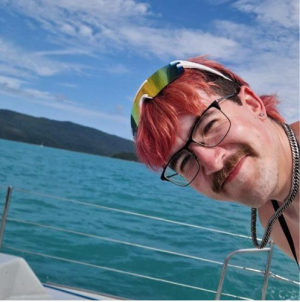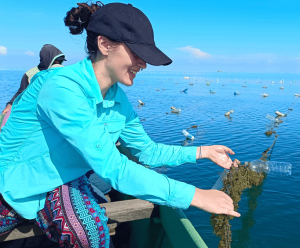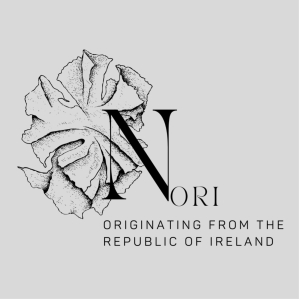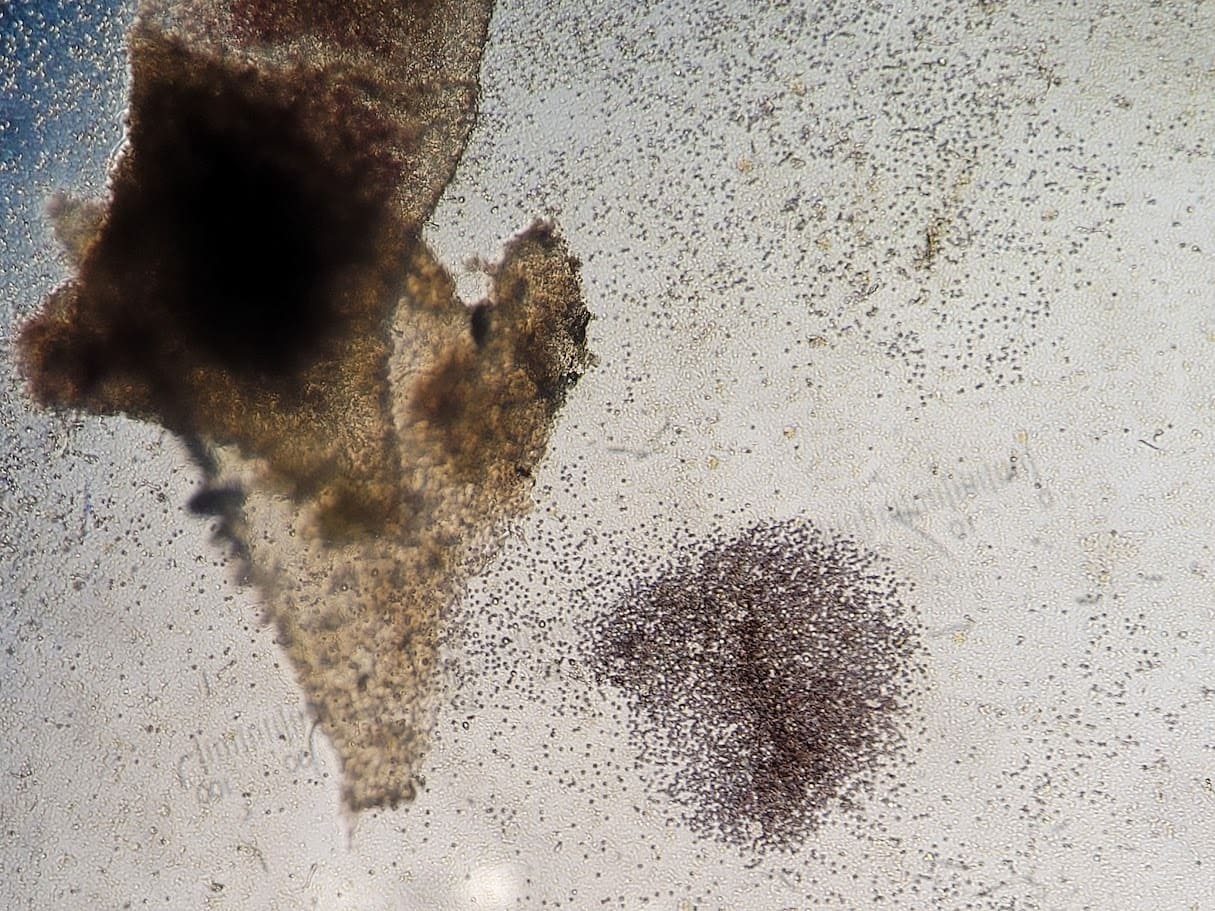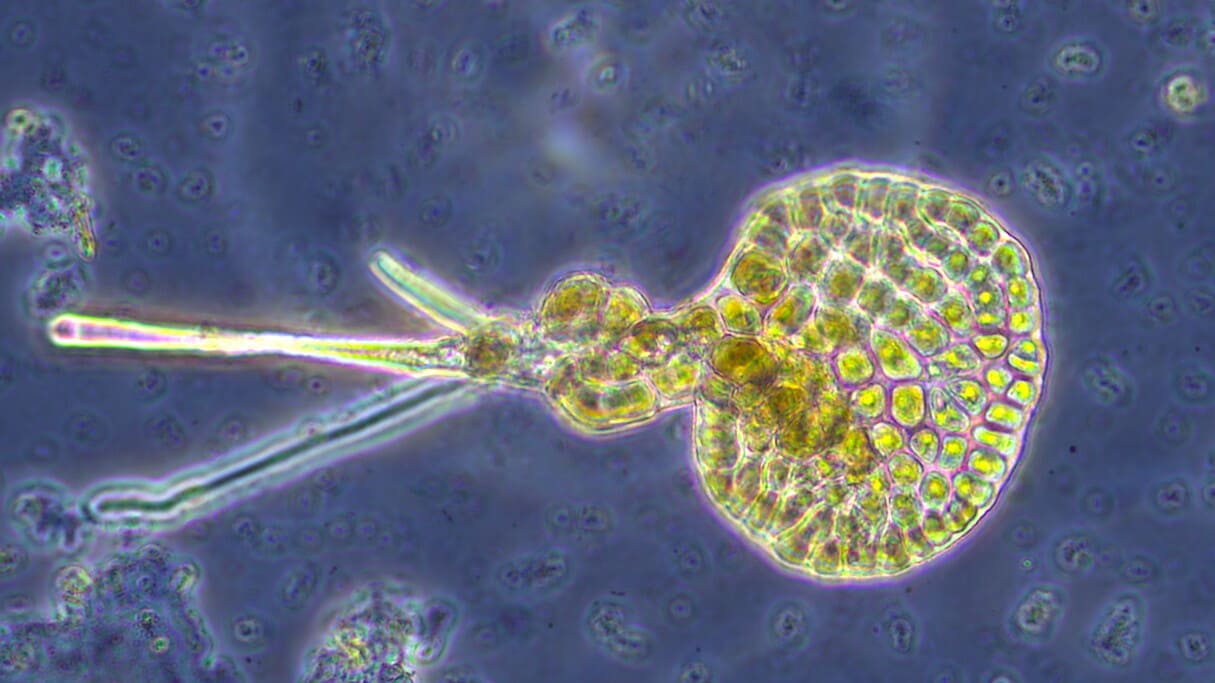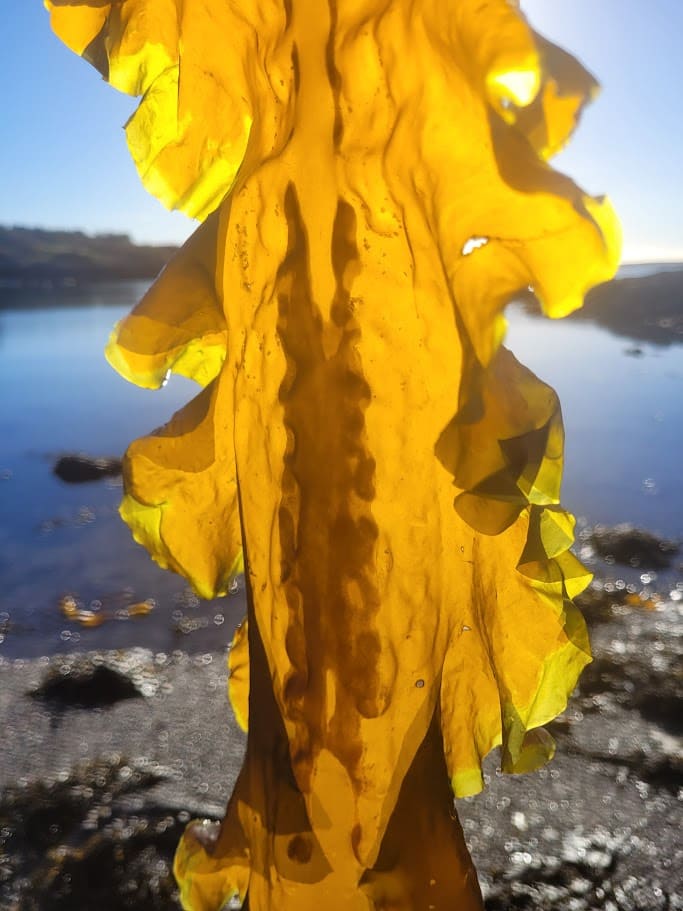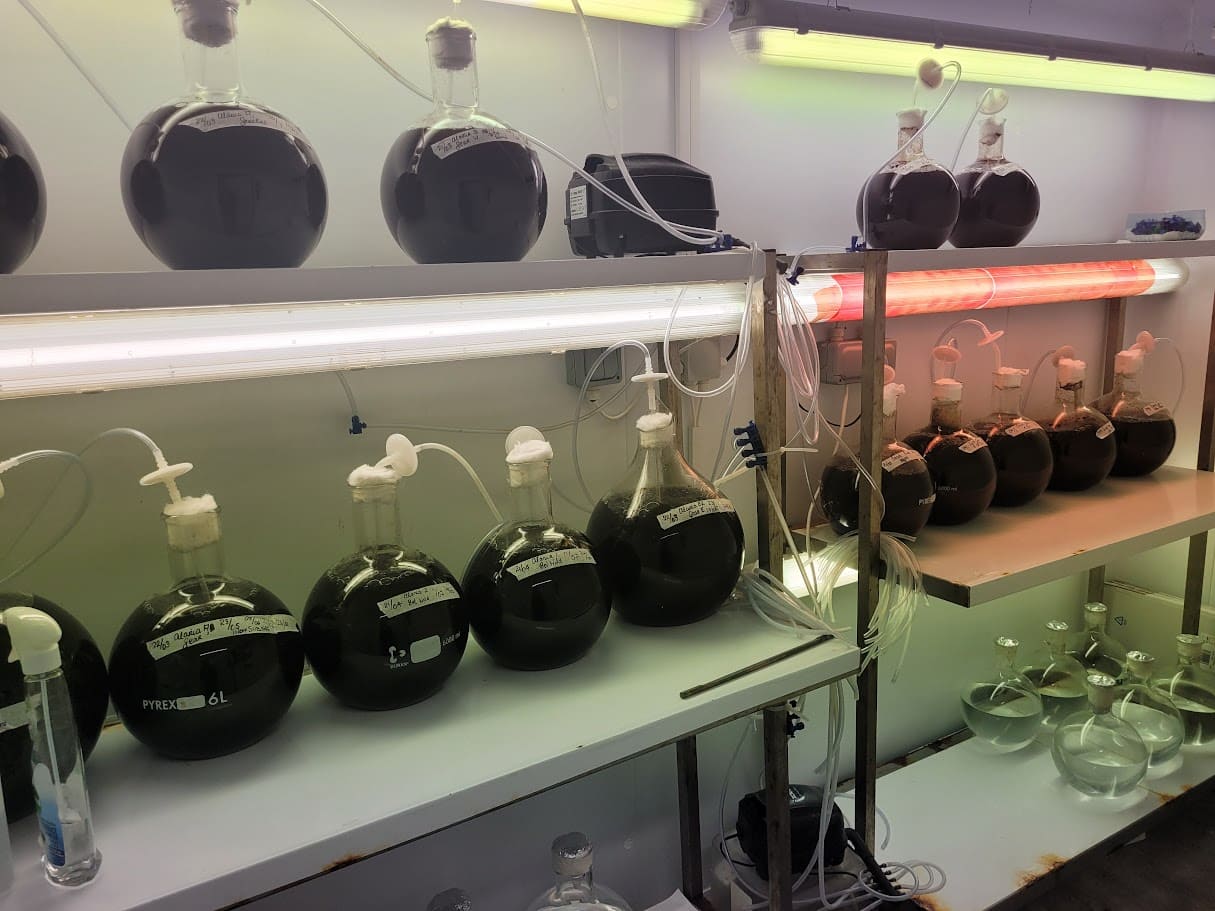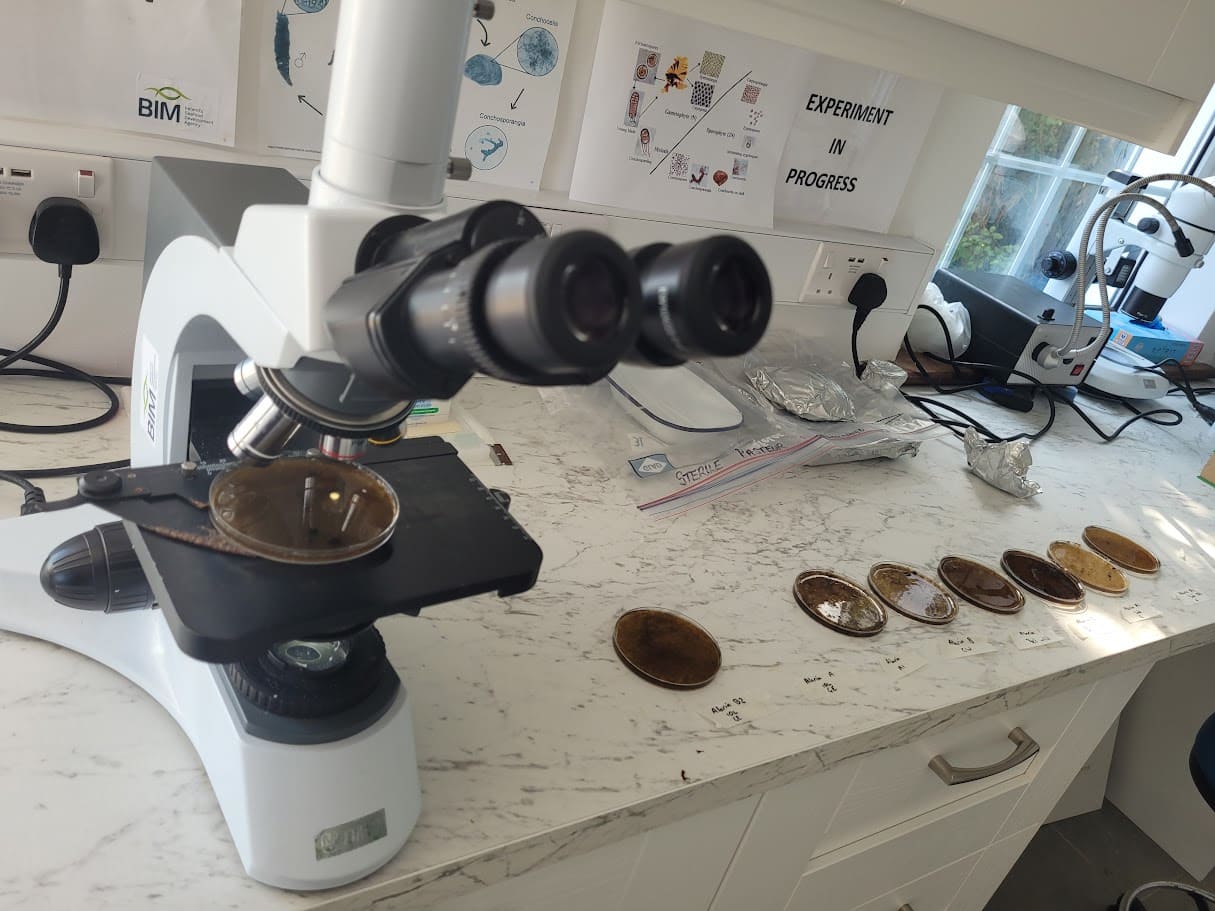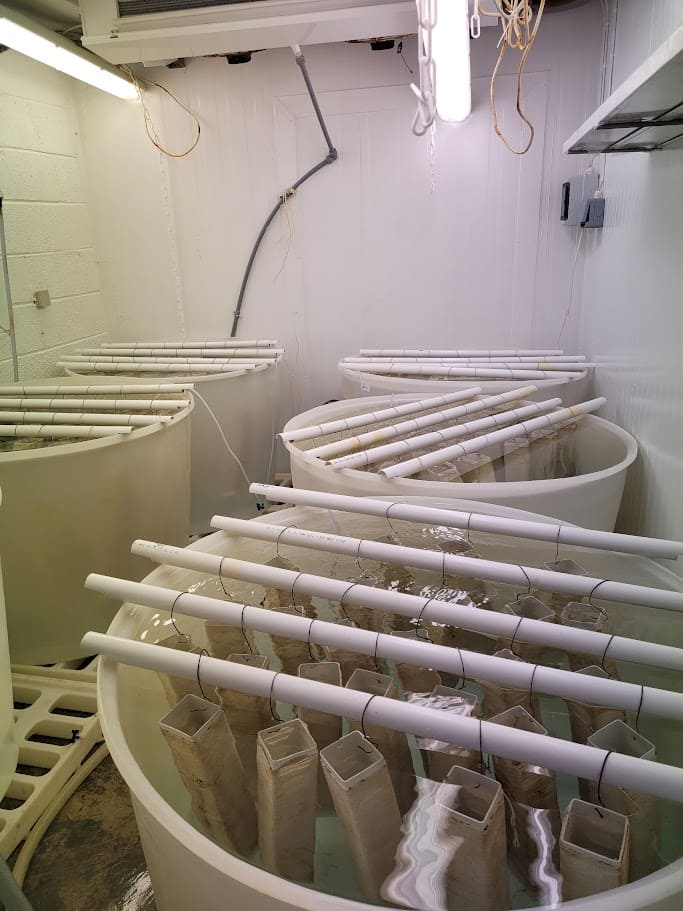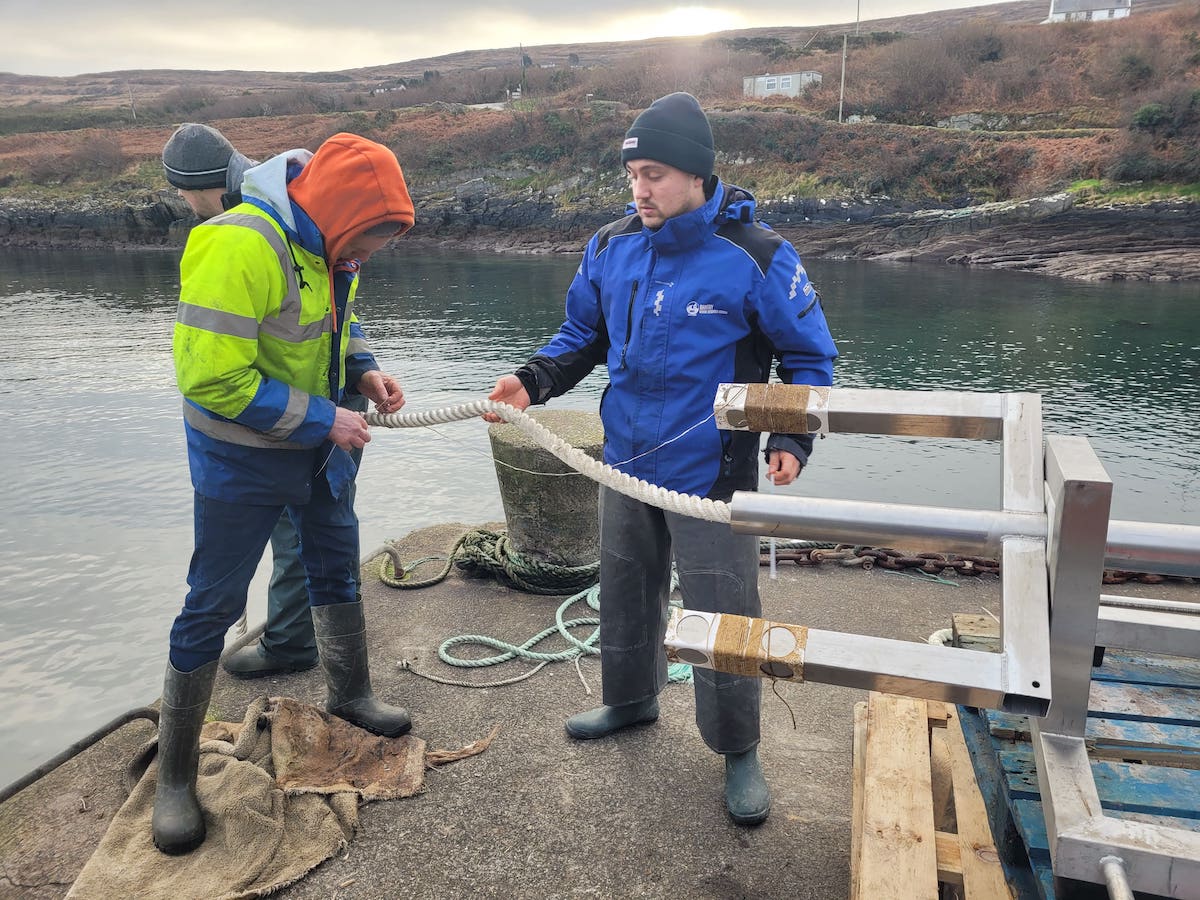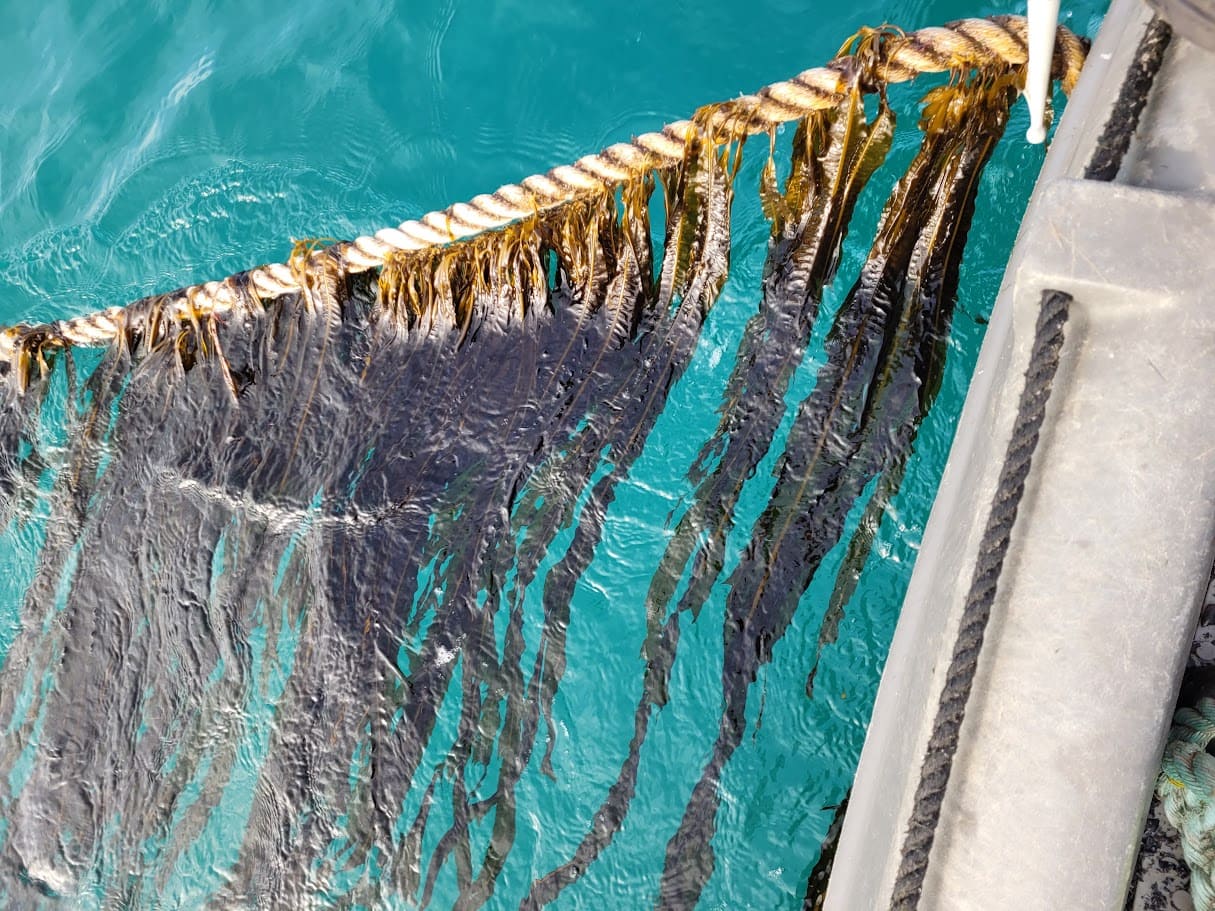Super User
An integrated modelling approach for the stocking optimisation of a commercial-scale salmon-kelp IMTA system
Krupandan, A., Falconer L., Maguire J., Telfer T. (2026) An integrated modelling approach for the stocking optimisation of a commercial-scale salmon-kelp IMTA system. Aquaculture, Volume 613, Part 1. ISSN 0044-8486.
Read the article.
Bioaccumulation and Depuration of Emamectin Benzoate and Oxytetracycline in the European Black Sea Cucumber
Juhasz-Dora, T., C. Hannon, L. Harman, J. Maguire, T. K. Doyle, L. Buijse, S. K. Lindberget (2025). Bioaccumulation and Depuration of Emamectin Benzoate and Oxytetracycline in the European Black Sea Cucumber (Holothuria forskali): Implications for Aquaculture Integration. Aquaculture, Fish and Fisheries 5, no. 6: e70132.
Read the article.
Seaweed inclusion in artificial diet of purple sea urchin Paracentrotus lividus: effects on somatic and gonadal development
Pontinha, V.A., J. Maguire, C. Simioni, F. do Nascimento Vieira, L. Hayashi (2024) Seaweed inclusion in artificial diet of purple sea urchin Paracentrotus lividus: effects on somatic and gonadal development Boletim do Instituto de Pesca 50, DOI: 10.20950/1678-2305/bip.2024.50.e877
Read the article.
Timothy Bohan, MSc., BSc.
Role: Research Assistant
Timothy Bohan holds a Master of Science in Applied Coastal and Marine Management from and a Bachelor’s degree in Geographical and Archaeological Sciences from University College Cork. His expertise lies in seaweed cultivation, Integrated Multi-Trophic Aquaculture (IMTA), and marine ecology.
Tim has worked extensively with the anti-methanogenic seaweed Asparagopsis spp., conducting his MSc. thesis on an IMTA system utilizing Asparagopsis armata and salmon effluents at the Bantry Marine Research Station (BMRS). He later expanded his work in South Australia, where he cultivated A. armata and A. taxiformis at a commercial scale. There, he played a key role in enhancing quality control and optimizing production processes through his applied knowledge of seaweed cultivation.
Currently, Tim is focused on the distribution and potential valorisation of invasive marine species in the Northeast Atlantic and the Mediterranean. He is a collaborator on the VALIAS Project, funded by the MSCA Horizon Europe programme.
Lorena Marcos Almansa MSc., BSc.
Role: Junior Research Scientist
Lorena specialises in seaweed cultivation, disease and marine ecology. She holds a Master's in marine science and Bachelor's in Environmental Science with a focus on marine ecosystems.
With extensive hands-on experience, Lorena has worked with various seaweed species, including Alaria esculenta, Saccharina latissima, Gracilaria caudata, Kappaphycus alvarezii, and Kappaphycus striatus. Her research spans Brazil, Norway, and Indonesia, where she has contributed to kelp processing and quality control, as well as researched fermentation and acid preservation techniques.
Taking a socio-ecological approach, she focuses on disease management in seaweed farming, particularly in addressing Ice-Ice Disease. Additionally, Lorena has experience working with intertidal species such as mussels, oysters, and crabs.
In her current role, Lorena supports the Hatchery Manager in cultivating Irish kelps (Alaria and Saccharina) and Nori (Porphyra) contributing to both research projects and production efforts.
Antimicrobial Activities of Polysaccharide-Rich Extracts from the Irish Seaweed
McGurrin, A.; Suchintita Das, R.; Soro, A.B.; Maguire, J.; Flórez Fernández, N.; Dominguez, H.; Torres, M.D.; Tiwari, B.K.; Garcia-Vaquero, M. Antimicrobial Activities of Polysaccharide-Rich Extracts from the Irish Seaweed Alaria esculenta, Generated Using Green and Conventional Extraction Technologies, Against Foodborne Pathogens Marine Drugs. 2025 23(1):46 https://doi.org/10.3390/md23010046.
Read the article.
NORI
The mission of NORI is to develop an Irish production process of the edible seaweed nori, which is well known for its use in sushi rolls. This will be successful when the following three objectives have been achieved:
1. Successfully domesticate Irish Porphyra umbilicalis (nori)
- Obtain fertile blades at ideal conditions for sexual reproduction of nori.
- Obtain blades that contain archeospores for the asexual reproduction of nori.
- Isolate several strains and select the best performing strain for aquaculture.
2. Achieve desirable quality traits in the product
- Determine optimal growth conditions for high yield.
- Determine pre-harvest culture conditions for optimal biochemical composition of biomass.
3. Upscale to pre-commercial scale
- Achieve free-floating cultivation at lab scale.
- Achieve free-floating cultivation in 600 to 1000 L tanks.
- Achieve free-floating cultivation in 10000 L tanks.
BMRS leads this project and will apply its expertise in seaweed cultivation to successfully develop a nori cultivation process. The group of Prof Stengel from the university of Galway will apply their expertise to characterise the biomass produced and optimise the cultivation conditions.
Seaweed Hatchery
BMRS’ seaweed hatchery supplies high quality seaweed starting material for seaweed farms which help them to achieve good yields. BMRS has over 20 years of experience in breeding and propagating of several Irish seaweeds including Alaria esculenta and Saccharina lattisima.
At the BMRS seaweed hatchery we currently produce seeded strings or gametophytes for the kelps Alaria esculenta and Saccharina lattisima. If you are interested in our services, please contact us at or call us on +353 27 29181.
Stages of the Seaweed Hatchery
Study of silver nanoparticles bioaccumulation in cultured red and green seaweed
López-Mayán JJ, Álvarez-Fernández B, Peña-Vázquez E, Barciela-Alonso MC, Moreda-Piñeiro A, Maguire J, Mackey M, Bermejo-Barrera P. 2024. Study of silver nanoparticles bioaccumulation in cultured red and green seaweed. Chemosphere 369 doi: 10.1016/j.chemosphere.2024.143872.
Read the article.
PHAROS
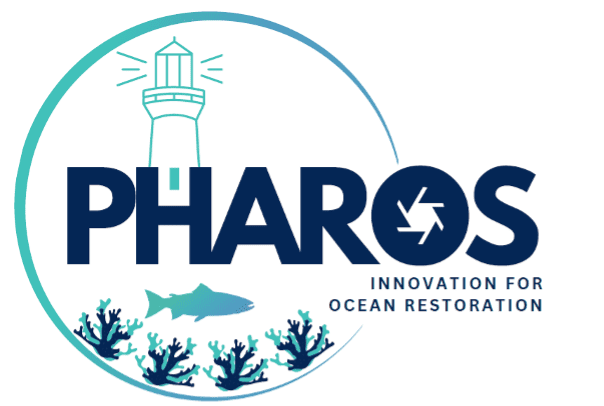
PHAROS aims to be the stepping stone bridging the two phases set by the EU in their Implementation Plan for the Ocean Mission to protect and restore the marine ecosystem and biodiversity. To achieve this, the PHAROS consortium has set seven objectives. The first objective will be to engage in citizen and other stakeholder engagement, co-creation and citizen science for community-led biodiversity solutions. To achieve this PHAROS will establish Living Labs and develop stakeholder engagement tools and guidelines. The second objective will demonstrate the relevant innovative nature-based solution for ecosystem restoration in multiple demo sites in the Atlantic and the Arctic (Mission phases 1 and 2) to boost coastal resilience through restored and resilient coastal ecosystems. This will be achieved by deploying four demos, of which two are in Gran Canaria, one in Ireland and one in Iceland. The third objective aims to extend to large areas of the Atlantic, EU AOM islands and Arctic, the BLUE4ALL project Marine Protected Area (MPA) Blueprint platform and network for successful co-management of MPA issues, including identification, categorisation, adaptive management practices, governance and corridor integration. Therefore, PHAROS will add innovations to the Blueprint platform for collective action and the set up of ecological corridors. The fourth objective has the aim to fundamentally change perception of roles by implementing fisher and citizen Guardians and Cleaners of the sea programs to address ocean pollution (Mission Phase 1 and 2). Therefore, PHAROS will enhance and roll out the fisher guardian (from NETTAGplus project) program and citizen litter entrepreneur (from REMEDIES project) program. PHAROS will develop both programs to become end-to-end circular economy solutions. With the fifth objective PHAROS will assist local entrepreneurs and SMEs co-create multiple demo based NBS business plans, host investor brokerage events, and for Associated Regions co-created replication roadmaps with systematic biodiversity and ecosystem restoration solutions for the AA basin and beyond, based on project results with innovative business models and sophisticated modelling (Mission phase 1 and 2). This will be done by sharing knowledge and data and by the creation of tools and guidelines. The sixth objective has the aim to extend the Network of Blue Schools to the AA basin to improve ocean literacy across school communities and support citizen science (Mission phase 1 and 2). Therefore, PHAROS will team with Mission project PROBLEU to ensure that the next generation continues the EU Mission objectives, increase awareness and involvement in ocean biodiversity and ecosystem restoration, and optimally employment in the Blue Economy. The last objective has the aim to provide active support to the EU data transfer object (DTO) by building a local DTO of two regions in Gran Canaria and Iceland, and by making the PHAROS project output interoperable with the EU DTO (Mission enabler phase 1 and 2). This will be achieved by real-time data monitoring at the demo sites.
BMRS’ Role
BMRS will deploy the third demo located in Ireland. This demo consists of a kelp farm cultivating winged (Alaria esculenta) and sugar (Saccharina lattisima) kelp. In this demo the effect of a salmon farm, located near the seaweed farm, on the growth of the kelp will be monitored and compared to a control side. The effect of the seaweed form on the biodiversity at the demo site will also be monitored.

